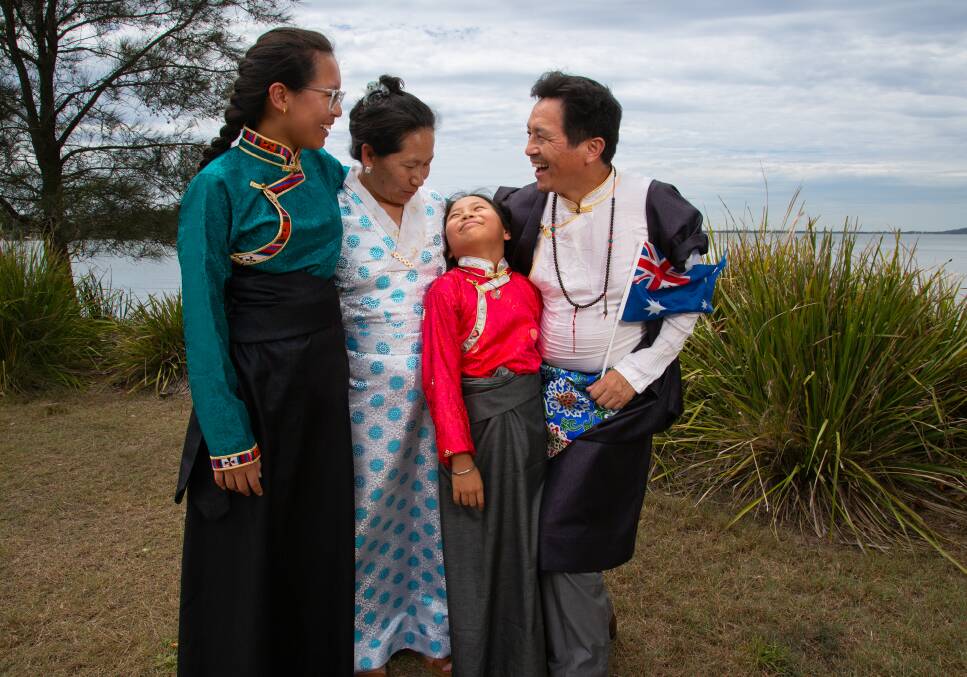
AGED care worker Tsultrim Nima has embraced becoming an Australian citizen and the freedom it brings with it.
The 45-year-old fled persecution as a Buddhist in Tibet in his early years, and was living as a refugee in India until he was moved to Australia under a Special Humanitarian Program five years ago.
The program gives residency to people who have been subjected to "substantial discrimination" in their home country, amounting to a "gross violation" of their human rights.
"They started to restrict very heavily what you could practice and how you could practice, and they started hunting people down, so we had to escape," Mr Nima said.
"It wasn't just religion, even language and human rights such as freedom of expression were heavily restricted."
On Thursday, Mr Nima, his wife Tenzin Dolker and children Tenzin Yeshi, 14, Tenzin Soepa, 8, took the citizenship pledge alongside almost 90 others at a ceremony at Lake Macquarie's Rathmines Theatre.
He said he was thankful for the opportunities and great education that a life Down Under would afford his family.
"In Australia, it's very safe, there is freedom and we feel safe all the time," he said.
Lake Macquarie mayor Kay Fraser said the new citizens came from 30 nations spanning the globe, from Canada to China and Nigeria to the Netherlands.
Some had lived in Australia for more than 50 years and were only now becoming citizens, while others are new arrivals.
"Whatever their back story, everyone who took the citizenship pledge today is so lucky to call Australia, and Lake Mac, home," Cr Fraser said.
"Likewise, we as a community are so fortunate to welcome these new citizens, who enrich us with their cultures, traditions, knowledge and shared desire to officially become Aussies."
This year is believed to be the first time that Lake Macquarie City Council has scrapped its Australia Day citizenship ceremony.
It joins about 80 other councils, including Newcastle, that won't be holding a ceremony on Friday, in a decision Lake Macquarie council previously said, "offers new citizens, their families and the broader community the flexibility to mark Australia Day in a way that suits them".
The council holds regular citizenship ceremonies throughout the year, with more scheduled for April, August and October.







